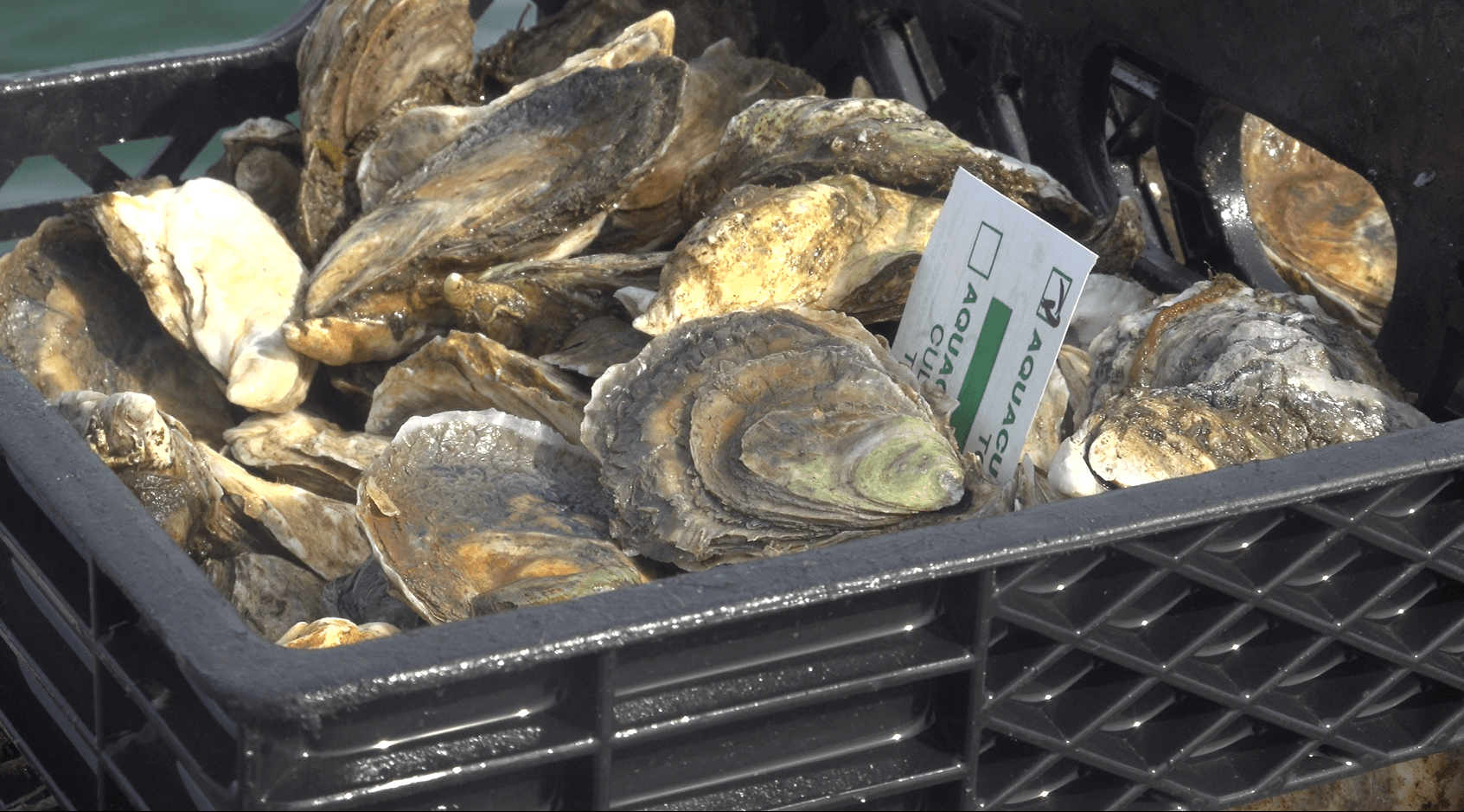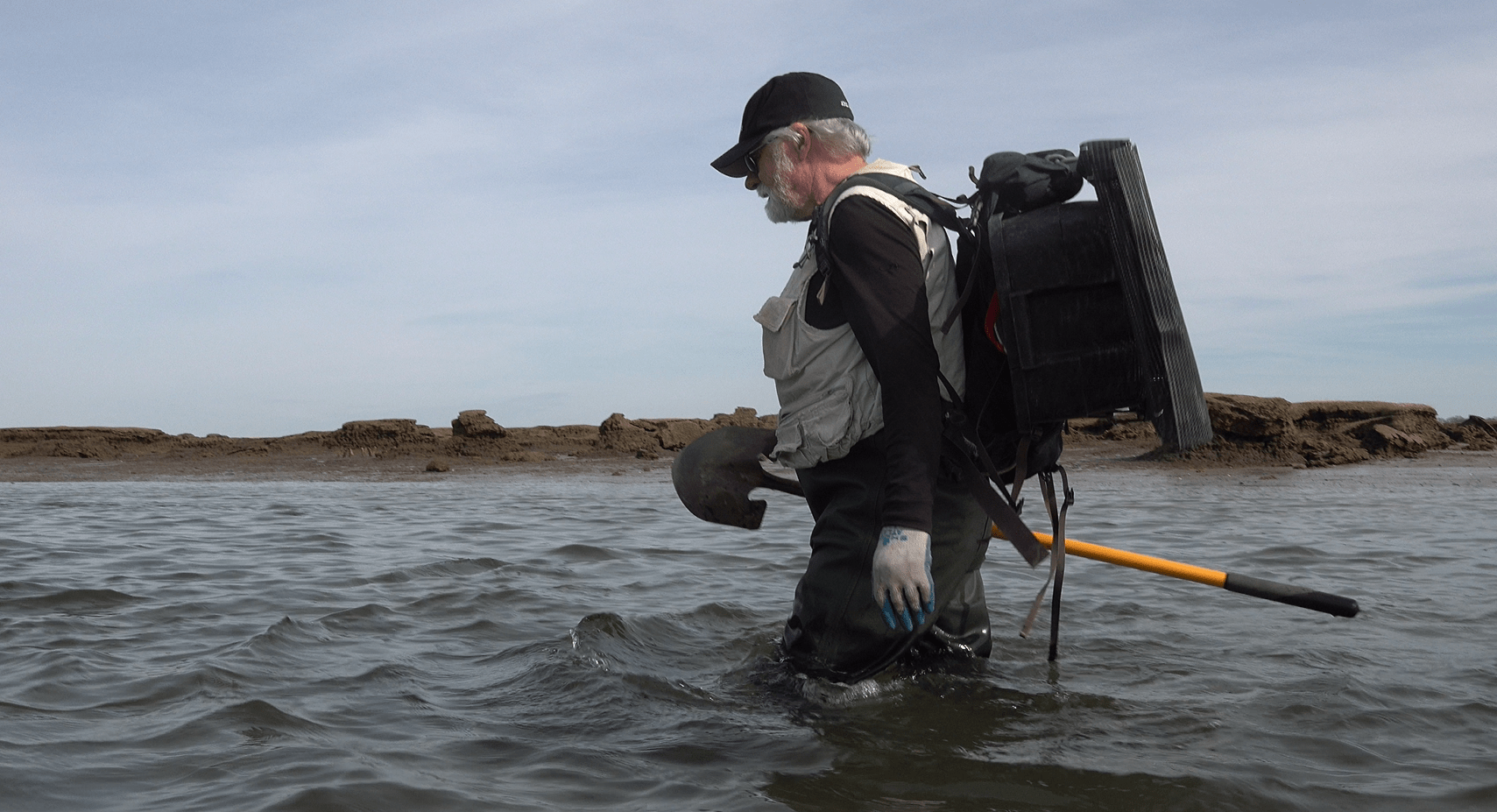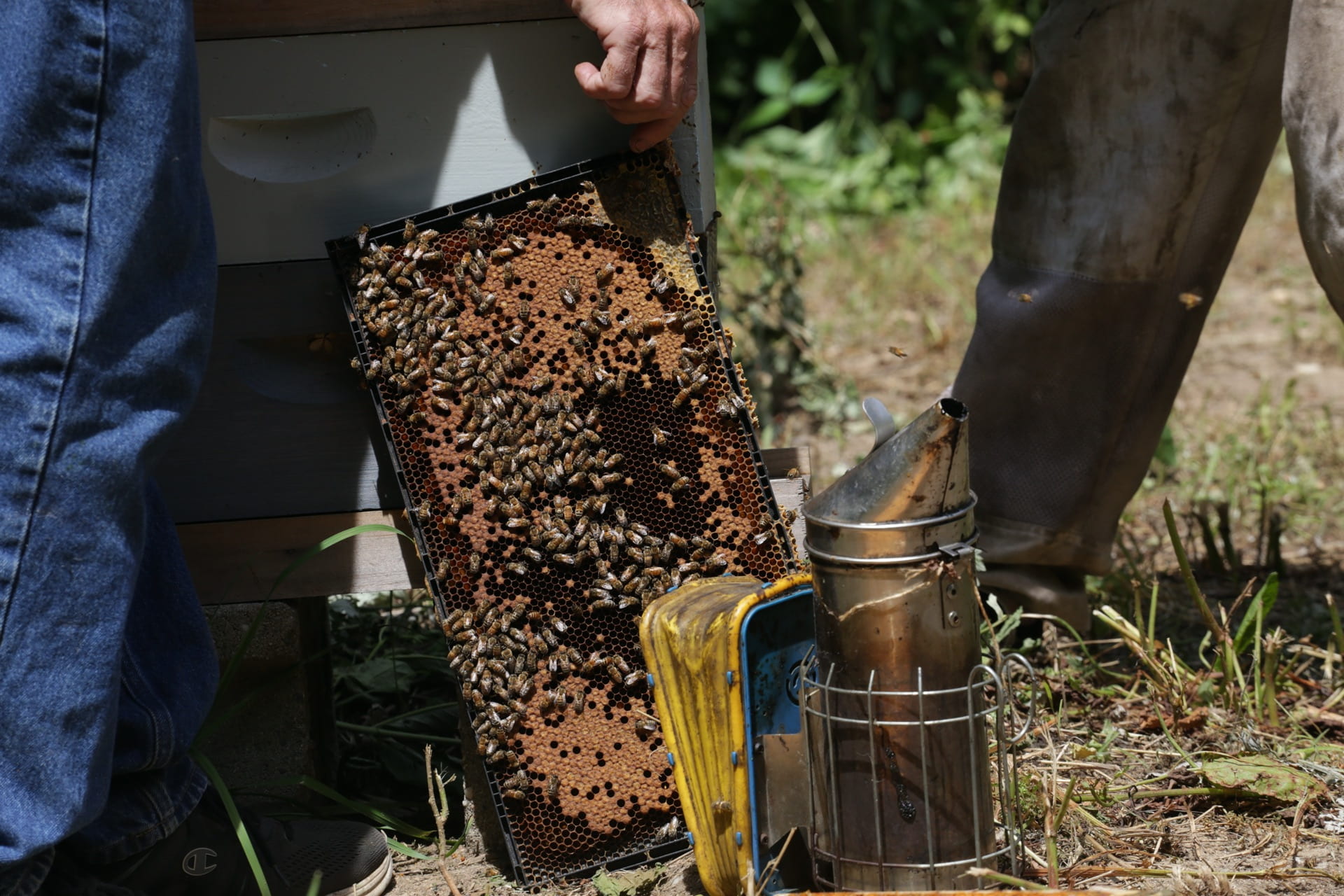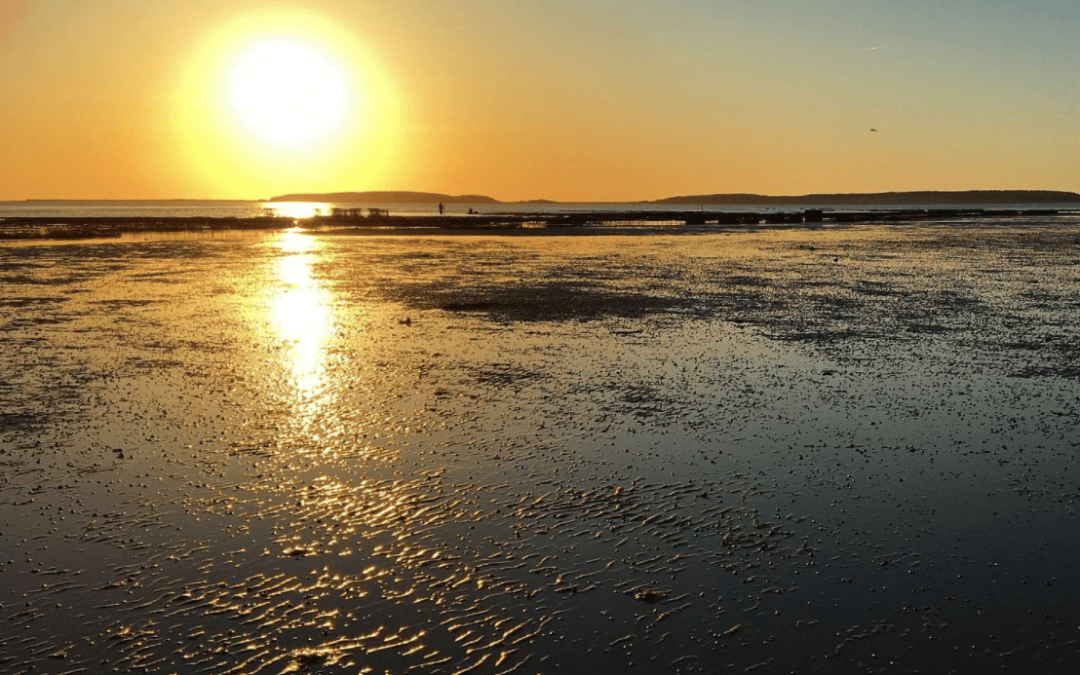April 21, 2022
This blog post was written by Emily Teixeira and Danielle Schwartz.
Tomorrow is Earth Day! In celebration, the Pace Docs Team is giving a shout out to two keystone species that have a surprising number of traits in common: oysters and honeybees.
Oysters have historically been referred to as “the bees of the sea.”
Of course, at first glance, these creatures seem nothing alike. But oysters have historically been referred to as “the bees of the sea” – honeybees promote the health of terrestrial ecosystems by pollinating plants, and oysters promote the health of aquatic ecosystems by filtering water and removing excess algae and nitrogen. Oysters and honeybees are both “keystone species” – they have such a significant impact on their respective environments that their absence could cause dramatic changes. In addition to filtering water and maintaining nitrogen levels, oysters can form reefs that provide structure to the seafloor and protect against storm surges. These reefs promote biodiversity by providing habitats and food for fish, crustaceans, and other ocean life.

Honeybees promote biodiversity by aiding in the growth and reproduction of various plant species. When those species thrive, the rest of their ecosystem thrives. Honeybees and oysters also benefit humans. Oysters are a good source of protein. There are many ways to eat them- raw, baked, grilled, boiled, fried, and in stews. They pair well with a variety of toppings and seasonings. Honeybees produce honey, and they play a key role in the production of apples, pears, berries, melons, almonds, and squashes. Did you know that blueberries and cherries are 90% dependent on honeybee pollination?
Then there’s the principle of terroir and merroir.
Terroir is a French term meaning “taste of place” and it’s often used when describing the impact of soil and climate on the flavor of wine. The same concept applies to honey. Its flavor and color vary based on the flowers that the bees gathered nectar from. Orange blossom honey is sweet and floral, while heather honey is slightly bitter with a strong aroma.
Merroir, like terroir, refers to “taste of place” but specifically when dealing with aquatic life forms like oysters. All oysters along the east coast are part of the same species (Crassostrea virginica), but they taste different depending on the nutrients, currents, and temperatures to which they are exposed.

John Reeve, Chief Oysterman at Mill Creek Oyster Company
Unfortunately, oysters and honeybees have been declining naturally in the wild. Disease, overfishing, pollution, and increases in ocean temperatures and pH have harmed oyster populations over the years. Pesticides, parasites, and diseases have threatened the bees.
Despite their differences, oysters and honeybees both remind us of the gentle balance of nature. At the end of the day, humans are responsible for the conservation and endurance of this Earth. Many initiatives are already in place like rebuilding oyster reefs through the Billion Oyster Project, and programs for the bio extraction of nutrients by shellfish in the Long Island Sound.

Remnants of Pier 32 in NYC, now used as an oyster reef
For honeybees, the Natural Resources Conservation Service from the USDA offers many programs to accelerate the conservation of honeybees. There are also educational programs to help learn how to keep a hive disease-free. As for what we can do personally, try to avoid pesticides and fertilizers, which harm local wildlife and end up in our waterways. Eat oysters at restaurants, and maybe plant a pollinator-friendly garden with plants native to your area.

Of course, climate action will also play a big role, so this Earth Day, look for earth-friendly initiatives near you and get involved in helping your local ecosystems. There is hope on the horizon for both species when enough of us commit to making a difference.
To learn more about honeybees, bee sure to check out Pace Doc’s most recent documentary Bee Aware, and stay tuned for the upcoming release of Tide to Table: The Remarkable Journey of Oysters, on May 10th. Reserve your free ticket today!

